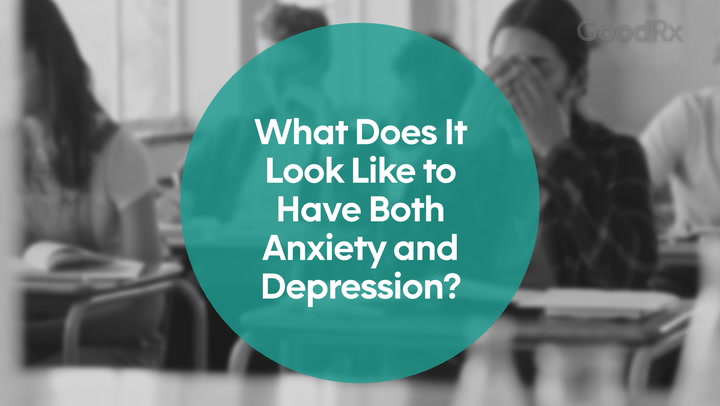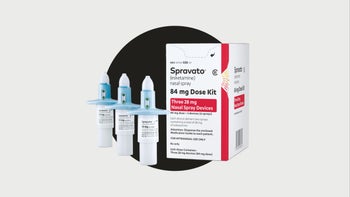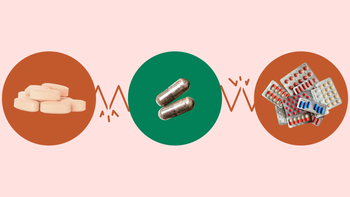
10 Effective Coping Skills for Depression
Key takeaways:
Effective coping skills can help improve your mood and reduce symptoms of depression.
There are many coping strategies that can help when you have depression, including laughing, practicing gratitude, and helping others.
Coping skills can go a long way toward helping with major depression, but they’re not a replacement for professional help.
Table of contents

If you’re dealing with major depression, there are coping strategies you can try to help manage it. You may be surprised by how they can lift your spirits on a particularly difficult day or inspire hope when you feel hopeless. Although coping skills aren’t a replacement for professional treatment, they can sometimes help you get through tough times.
Below, you’ll find ten positive coping skills for when you’re feeling sad, isolated, or without purpose — and what to do if they don’t work.
What are the best coping skills for depression?
Acknowledging that you’re experiencing major depression or a depressed mood is the first step to getting better. It means you’re not ignoring your symptoms. You’re aware you need help, and you want to do something about it.
Search and compare options
We’ve pulled together the following ten positive coping skills with the help of research and a depression expert. Try them out and see if they work for you. Sometimes, you may need to practice a coping skill several times to feel its benefits. If one doesn’t work for you, try something else.
And remember: Even with the best coping skills, it’s also important to get professional help if you’re dealing with major depression.
1. Do one self-care activity
One of the hardest things to do when you have depression is to follow a daily routine — especially if you’re experiencing a lot of fatigue from your depression.
Sometimes, you may not feel like bathing, brushing your teeth, or putting on fresh clothes. If you’re feeling this way, just pick one self-care activity. This could be as simple as taking a shower or changing your clothes. You could also do something that you enjoy, like reading a book or spending time in nature.
2. Talk to your support network
You may feel like a burden to others when you’re experiencing depression. But this feeling is most likely a symptom of your depression. Your friends and family want to be there for you, just like you would want to be there for them if the roles were reversed.
Research suggests that it’s more helpful to talk to trusted loved ones than to isolate yourself when you’re dealing with depression. If you don’t feel like going out or having someone over, try a phone call or video chat. It may hold you over until you’re ready to socialize in person.
3. Get active
Exercise is a natural mood booster. It releases endorphins, which can help you feel better almost immediately. When you’re feeling trapped or paralyzed emotionally, try going for a short walk outside.
If heading outdoors seems like too much, walk in place in front of your TV or pace around your living room to your favorite music. A little movement can go a long way to helping you feel better.
4. Explore nutritious snack options
Did you know that foods can affect your mood? Sugary foods and drinks, for example, can intensify depression symptoms. And the caffeine found in coffee and soda can raise anxiety levels.
Because of how food can impact your mood, you can also use it as a coping strategy. Try food options that satisfy your cravings without affecting your mood. Make it into an experiment. How many new foods can you try? What new tastes can you discover?
Consider these options as a starting point:
Fresh fruit: for those sugar cravings
Nuts or seeds: when you want a crunch with a little salt
Decaf coffee or caffeine-free tea: for a cup of warm comfort
Whole-grain breads and pastas: when you crave comfort carbs
A juicy salmon filet: as a tasty way to get protein and omega-3 fatty acids
Depression can change your appetite, too. If you find yourself feeling depressed and not eating, try to find foods that sound appetizing. Or, if your appetite is high or changing day to day, try to stick to balanced eating as much as possible. Think about using food as fuel, to give your body the nourishment it needs.
5. Challenge your thoughts
Negative thinking can sometimes worsen your depression symptoms. If you’re beating yourself up or feel hopeless or discouraged about the future, write down your thoughts and look for distortions in your thinking. Distorted thoughts are thoughts that are negative or not based on reason, facts, or reality.
Examples of distorted thinking include:
Catastrophic thoughts: “My party will be a disaster.”
Making unfounded predictions: “I will never feel better.”
Unfairly labeling yourself: “I’m such a dummy.”
Mind reading: “Everyone hates me.”
Turning something positive into a negative: “My work is good, but it should be better.”
Challenge negative thoughts by asking yourself, “Are these valid, truly accurate, or fair?” You may also ask yourself, “Are there any times when these statements aren’t true?” Try to think about how you would respond to a friend if they had these thoughts. Journaling may help you see things more clearly.
6. Tap into your senses
To stabilize your emotions during those “rollercoaster” moments, try engaging multiple senses. This means doing things that stimulate more than one of your five senses — like sight, touch, or hearing — at the same time.
For example, watch a movie while wrapped in your favorite blanket, or look at nature while listening to meditative music. You could also do a “five-senses grounding exercise” by naming:
Five things you can see
Four things you can touch
Three things you can hear
Two things you can smell
One thing you can taste
7. Have a laugh
Research has linked laughter to reduced stress and depression. Studies suggest that laughing lowers your body’s stress chemicals, such as cortisol and epinephrine. It can also raise chemicals that elevate mood, such as dopamine and serotonin.
Some ways to bring a little laughter into your day include:
Watching a funny show
Reading comics
Spending time with a friend who makes you laugh
Catching up on your favorite internet memes
8. Start a gratitude journal
On days when your feelings are particularly difficult, jot down several things that you’re grateful for. Research suggests that there’s a correlation between practicing gratitude and lower levels of depression. Expressing gratitude can help you focus on the things — no matter how small — that give your life meaning and purpose.
Keep a notebook handy on your nightstand or coffee table. Think about people or experiences that make you feel good and focus on those positive feelings. You can even note things that seem small or even neutral, like access to clean water or a nice cup of coffee. Then, write them down. Aim to record five things you’re grateful for each day.
9. Encourage others
One way to lighten a depressed mood is to turn your attention to helping another person. Studies suggest that supporting others by making statements using “you,” rather than “I,” can help you regulate your own emotions.
What does this look like? Try something simple, like telling a grocery store clerk, “Thank you, you are always so helpful.” Or reach out to a friend who’s going through a difficult time and ask, “What do you need?”
“Think about lifting up another person,” suggested Maud Purcell, a psychotherapist and founder of The Life Solution Center in Connecticut. “It can lift you out of your own depressed headspace,” Purcell explained.
That said, make sure you’re not so focused on other people that you ignore your needs. Find a balance between encouraging others and working through your depression. Keep in mind there may be times when you just don’t have the energy to support others. And that’s OK.
10. Practice mindfulness or meditation
Mindfulness can be a powerful tool when you’re experiencing intense emotions. It can help pull your focus away from the symptoms of your depression. Mindfulness may also encourage curiosity and hope. “Hope fights depression,” Purcell said.
Meditation exercises, especially those that calm worrying and ruminating thoughts, may also help you feel better. Purcell suggested that while these exercises may help you feel better in the moment, you shouldn’t wait until you’re feeling sad to practice them. Instead, make it a habit to meditate first thing in the morning.
“Often, people who are depressed feel the worst when they get up,” she noted. “Praying or meditating can start the day with a clean slate.” Purcell recommends grabbing a cup of coffee or tea, sitting in a comfortable chair, and praying, meditating, or reading something inspirational.
What activities can help with depression? From basic daily tasks like showering and housekeeping, to more active hobbies like volunteering or cooking, activities can help you cope when you’re living with major depression. Learn more from mental health expert Dr. Barbara Kamholz about what activities are best for managing depression.
What’s it like to take an antidepressant? Antidepressant medication can be a great option for treating depression. In this article, three people who take Wellbutrin share their experiences.
What’s it like to live with depression? When you’re living with depression, being honest with yourself — and with your community — can go a long way toward helping you get the support you need. Here, mental health advocate LaRee Etter shares her personal journey with depression and acceptance.
Why are coping skills for depression important?
Coping skills are important because they can help you feel better — even when you’re dealing with depression. They can also help you practice many of the things that are difficult when you have depression, such as:
Addressing problems directly
Setting healthy boundaries
Coping with strong emotions
Expressing your feelings
Reaching out for support
Nurturing yourself
When you’re struggling with depression, coping skills can also help you with basic self-care. This can be really helpful if you have a lot of fatigue from your depression, or if your symptoms make it hard to do daily activities like eating and showering.
What makes a coping strategy effective or ineffective?
An effective coping strategy doesn’t try to bury or ignore your current mood. Rather, it helps you shift focus away from your symptoms and get out of your head. And sometimes, this can help you feel a little better.
Ineffective coping strategies do the opposite. They help you to avoid or ignore your feelings and can keep you stuck. Ineffective strategies include:
Drinking a lot of alcohol
Working extra-long hours
Sleeping too much or not enough
Excessively blaming yourself
Thinking negative thoughts over and over again
Isolating yourself from family and friends
Though these may sometimes help you feel better temporarily, they often cause more problems in the long run.
What should you do if coping skills aren’t helping with depression?
Coping skills can be a powerful tool for managing major depression. But most of the time, they’re not a replacement for professional help.
If you’re struggling with depression, consider reaching out to your primary care provider or a mental health professional, like a therapist or psychiatrist. They can evaluate you for major depression and discuss treatment options.
Treatment for major depression typically includes either therapy, medication, or both. Types of therapy that can help include:
Emotion-focused therapy (EFT)
Behavioral activation for coping with depression
If you already work with a mental health professional, let them know what you’re experiencing. They may be able to help you experiment with new coping skills. And they can help you revisit your treatment approach, which could mean trying a different type of therapy or medication.
The bottom line
Positive coping skills can help you get through moments when you’re feeling depressed. Whether you start a gratitude journal, practice meditation, or spend time with a funny friend, there are many ways to lift your spirits. For some people, coping skills alone may not be enough. If you continue to experience depression despite using these coping skills, you should consider speaking with a mental health professional.
Why trust our experts?



References
Algorani, E. B., et al. (2023). Coping mechanisms. StatPearls.
Anxiety and Depression Association of America. (2022). Tips to manage depression.
Bathina, K. C., et al. (2021). Table 1 common types of cognitive distortions associated with depression and their definitions. Nature Human Behaviour.
Carr, D., et al. (2007). Mid-life and later-life crises. Encyclopedia of Gerontology.
Centers for Disease Control and Prevention. (2022). Risk and protective factors.
Centers for Disease Control and Prevention. (2023). How does social connectedness affect health?
Craft, L. L., et al. (2004). The benefits of exercise for the clinically depressed. Primary Care Companion to the Journal of Clinical Psychiatry.
Doré, B. P., et al. (2017). Helping others regulate emotion predicts increased regulation of one’s own emotions and decreased symptoms of depression. Personality and Social Psychology Bulletin.
Iodice, J. A., et al. (2021). The association between gratitude and depression: A meta-analysis. International Journal of Depression and Anxiety.
Knüppel, A., et al. (2017). Sugar intake from sweet food and beverages, common mental disorder and depression: Prospective findings from the Whitehall II study. Scientific Reports.
Mahindru, A., et al. (2023). Role of physical activity on mental health and well-being: A review. Cureus.
Parmentier, F. B. R., et al. (2019). Mindfulness and symptoms of depression and anxiety in the general population: The mediating roles of worry, rumination, reappraisal and suppression. Frontiers in Psychology.
Schuldt, W. (n.d.). Grounding techniques. Therapist Aid.
van Grieken, R. A., et al. (2014). Helpful self-management strategies to cope with enduring depression from the patients’ point of view: A concept map study. BMC Psychiatry.
Yim, J. E. (2016). Therapeutic benefits of laughter in mental health: A theoretical review. The Tohoku Journal of Experimental Medicine.
For additional resources or to connect with mental health services in your area, call SAMHSA’s National Helpline at 1-800-662-4357. For immediate assistance, call the National Suicide Prevention Lifeline at 988, or text HOME to 741-741 to reach the Crisis Text Line.

























